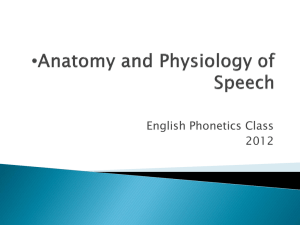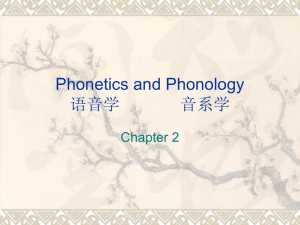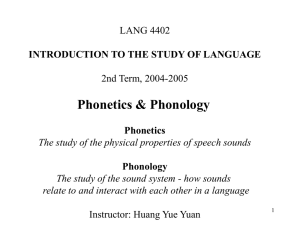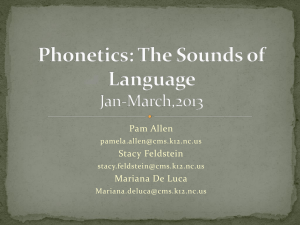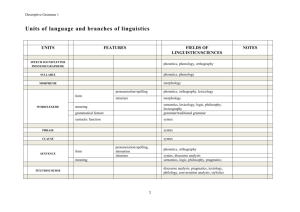Lecture 1 Пән: Теориялық фонетика Тема: The subject of
advertisement
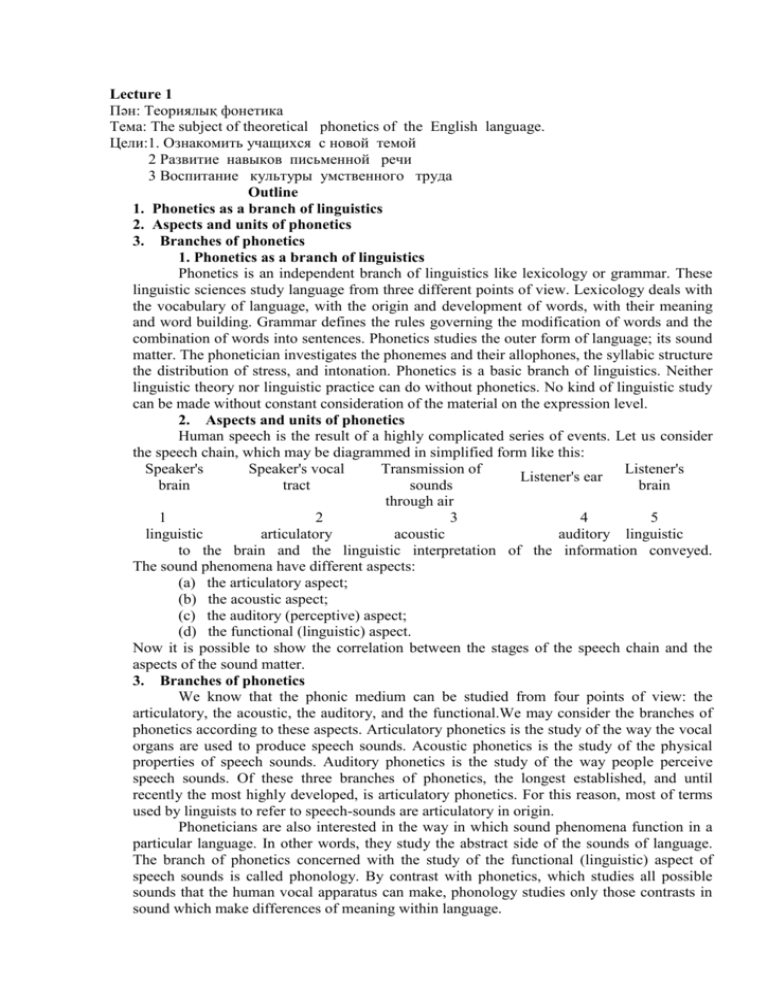
Lecture 1 Пән: Теориялық фонетика Тема: The subject of theoretical phonetics of the English language. Цели:1. Ознакомить учащихся с новой темой 2 Развитие навыков письменной речи 3 Воспитание культуры умственного труда Outline 1. Phonetics as a branch of linguistics 2. Aspects and units of phonetics 3. Branches of phonetics 1. Phonetics as a branch of linguistics Phonetics is an independent branch of linguistics like lexicology or grammar. These linguistic sciences study language from three different points of view. Lexicology deals with the vocabulary of language, with the origin and development of words, with their meaning and word building. Grammar defines the rules governing the modification of words and the combination of words into sentences. Phonetics studies the outer form of language; its sound matter. The phonetician investigates the phonemes and their allophones, the syllabic structure the distribution of stress, and intonation. Phonetics is a basic branch of linguistics. Neither linguistic theory nor linguistic practice can do without phonetics. No kind of linguistic study can be made without constant consideration of the material on the expression level. 2. Aspects and units of phonetics Human speech is the result of a highly complicated series of events. Let us consider the speech chain, which may be diagrammed in simplified form like this: Speaker's Speaker's vocal Transmission of Listener's Listener's ear brain tract sounds brain through air 1 2 3 4 5 linguistic articulatory acoustic auditory linguistic to the brain and the linguistic interpretation of the information conveyed. The sound phenomena have different aspects: (a) the articulatory aspect; (b) the acoustic aspect; (c) the auditory (perceptive) aspect; (d) the functional (linguistic) aspect. Now it is possible to show the correlation between the stages of the speech chain and the aspects of the sound matter. 3. Branches of phonetics We know that the phonic medium can be studied from four points of view: the articulatory, the acoustic, the auditory, and the functional.We may consider the branches of phonetics according to these aspects. Articulatory phonetics is the study of the way the vocal organs are used to produce speech sounds. Acoustic phonetics is the study of the physical properties of speech sounds. Auditory phonetics is the study of the way people perceive speech sounds. Of these three branches of phonetics, the longest established, and until recently the most highly developed, is articulatory phonetics. For this reason, most of terms used by linguists to refer to speech-sounds are articulatory in origin. Phoneticians are also interested in the way in which sound phenomena function in a particular language. In other words, they study the abstract side of the sounds of language. The branch of phonetics concerned with the study of the functional (linguistic) aspect of speech sounds is called phonology. By contrast with phonetics, which studies all possible sounds that the human vocal apparatus can make, phonology studies only those contrasts in sound which make differences of meaning within language. Literature: Соколова М. А. Теоретическая Фонетика. М 2001. Васильев В. А. English Phonetics. A theoretical course.М 2004


